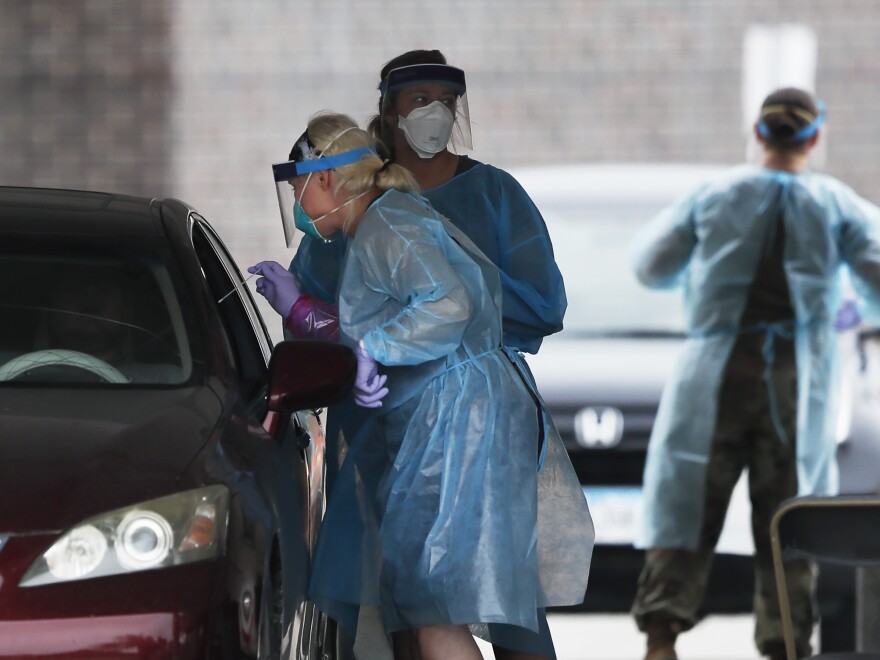In a unanimous decision, the Iowa Supreme Court has rejected Gov. Kim Reynolds’ attempt to dismiss a lawsuit over providing records about the state’s response to the coronavirus pandemic.
Journalists with Bleeding Heartland and the Iowa Capital Dispatch, along with the Iowa Freedom of Information Council, sued when the records requests went unfilled. Most of the documents were shared soon after the lawsuit was filed, but arrived up to 18 months after reporters asked for them.
Attorneys representing Reynolds and staffers also named in the lawsuit argued that the lawsuit should be dismissed because the requests were never outright denied. But Justice David May wrote in the court’s opinion that the governor’s office did not have to explicitly say it had denied the requests because “extensive delay may—on its own—establish an implicit refusal.”
Attorney Thomas Story of the ACLU of Iowa, which is representing the reporters in the case, said the ruling makes clear that if a request cannot be filled promptly, a state agency has to tell why.
“It must produce what it can when it can” Story said. “It must be diligent in its efforts and communicate its progress. It cannot under any circumstances simply ignore a request and if it does it will face consequences.”
In a statement, Reynolds said she disagrees with the ruling. She said the pandemic brought on an unprecedented number of records requests.
“The initial outbreak of the COVID-19 pandemic consumed every aspect of our daily lives, and accordingly my office shifted its entire focus to help Iowans navigate that difficult period,” Reynolds said. “While we disagree that this lawsuit should continue, my office has eliminated the backlog of open records requests and is committed to upholding our responsibility to respond to any new requests in a timely manner.”
The justices also rejected an argument from state attorneys who claimed it would be unconstitutional for a court to judge whether Reynolds’ office took too long to answer records requests. They said it would violate the separation of powers for the judicial branch to question the governor’s allocation of staff and resources to answer the requests during a public health emergency.
May wrote that the court doesn’t need to get into that. He said what matters in the case is whether reporters made a legitimate request and how the governor’s office responded.
“It should not depend on the defendants’ thinking. It should not depend on the defendants’ internal conversations. It should not depend on any of the inner workings of the Governor’s office. It should not depend on political questions, like whether the Governor properly allocated resources when staffing her office,” May wrote.
Laura Belin of Bleeding Heartland said in a statement that she knew it might take extra time to go through records requests during the pandemic. But, she said, the delays continued even after Reynolds had ended many aspects of the state’s emergency response.
"The Governor's Office sets the tone for the rest of state government,” Belin said. “When the governor's staff ignore records requests for months on end, sometimes for more than a year, it sends a message that complying with the Open Records law is optional.”
The justices ruled 6-0 in favor of the plaintiffs. Justice Edward Mansfield did not take part in the arguments or the decision. The ruling sends the case back to the district court where the lawsuit will proceed.





